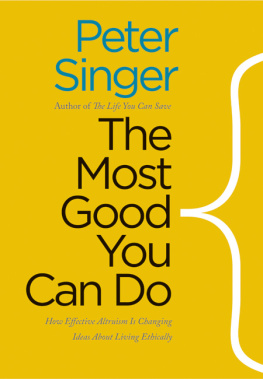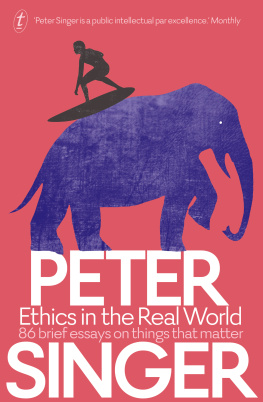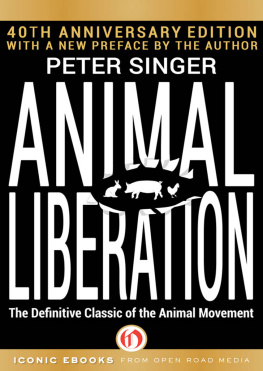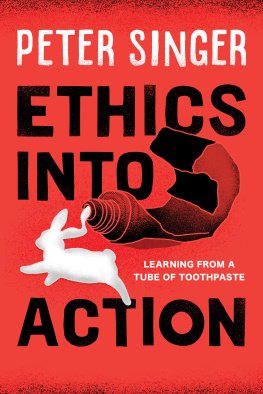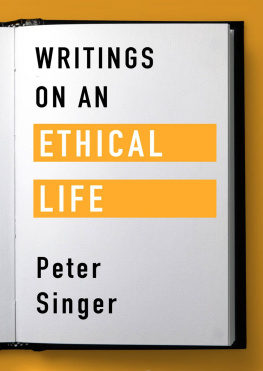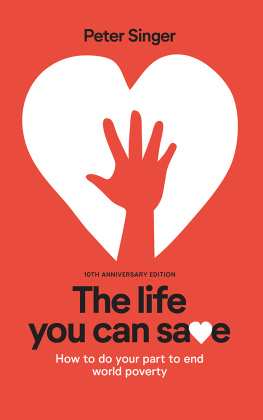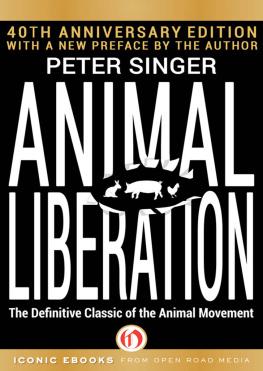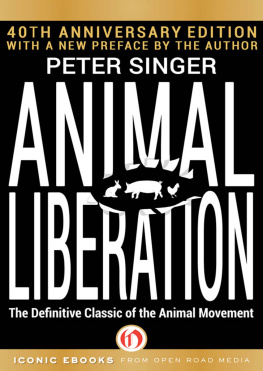The Most Good You Can Do

The Castle Lectures in Ethics, Politics, and Economics
Published with assistance from the foundation established in memory of James Wesley Cooper of the Class of 1865, Yale College.
Copyright 2015 by Yale University.
All rights reserved.
This book may not be reproduced, in whole or in part, including illustrations, in any form (beyond that copying permitted by Sections 107 and 108 of the U.S. Copyright Law and except by reviewers for the public press), without written permission from the publishers.
Yale University Press books may be purchased in quantity for educational, business, or promotional use. For information, please e-mail sales.press@yale.edu (U.S. office) or sales@yaleup.co.uk (U.K. office).
Set in Gotham and Adobe Garamond types by IDS Infotech Ltd.
Printed in the United States of America.
Library of Congress Cataloging-in-Publication Data
Singer, Peter, 1946
The most good you can do: how effective altruism is changing ideas about living ethically / Peter Singer.
pages cm. (Castle lectures in ethics, politics, and economics)
Includes bibliographical references and index.
ISBN 978-0-300-18027-5 (cloth : alk. paper) 1. Altruism. 2. Ethics. I. Title.
BJ1474.S56 2015
171.8dc23
2014035965
A catalogue record for this book is available from the British Library.
This paper meets the requirements of ANSI/NISO Z39.481992 (Permanence of Paper).
10 9 8 7 6 5 4 3 2 1
Contents
Preface
An exciting new movement is emerging: effective altruism. Student organizations are forming around it, and there are lively discussions on social media pages and websites as well as in the pages of the New York Times and the Washington Post.
Effective altruism is based on a very simple idea: we should do the most good we can. Obeying the usual rules about not stealing, cheating, hurting, and killing is not enough, or at least not enough for those of us who have the great good fortune to live in material comfort, who can feed, house, and clothe ourselves and our families and still have money or time to spare. Living a minimally acceptable ethical life involves using a substantial part of our spare resources to make the world a better place. Living a fully ethical life involves doing the most good we can.
Although the people most active in the effective altruism movement tend to be millennialsthat is, the first generation to have come of age in the new millenniumolder philosophers, of whom I am one, have been discussing effective altruism from before it had a name or was a movement. The branch of philosophy known as practical ethics has played an important role in effective altruisms development, and effective altruism in turn vindicates the importance of philosophy, showing that it changes, sometimes quite dramatically, the lives of those who take courses in it.
Most effective altruists are not saints but ordinary people like you and me, so very few effective altruists claim to live a fully ethical life. Most of them are somewhere on the continuum between a minimally acceptable ethical life and a fully ethical life. That doesnt mean that they are constantly feeling guilty about not being morally perfect. Effective altruists dont see a lot of point in feeling guilty. They prefer to focus on the good they are doing. Some of them are content to know they are doing something significant to make the world a better place. Many of them like to challenge themselves, to do a little better this year than last year.
Effective altruism is notable from several perspectives, each of which I will explore in the following pages. First, and most important, it is making a difference to the world. Philanthropy is a very large industry. In the United States alone there are almost one million charities, receiving a total of approximately $200 billion a year with an additional $100 billion donated to religious congregations. A small number of the charities are outright frauds, but a much bigger problem is that very few of them are sufficiently transparent to allow donors to judge whether they are really doing good. Most of that $300 billion is given on the basis of emotional responses to images of the people, animals, or forests that the charity is helping. Effective altruism seeks to change that by providing incentives for charities to demonstrate their effectiveness. Already the movement is directing millions of dollars to charities that are effectively reducing the suffering and death caused by extreme poverty.
Second, effective altruism is a way of giving meaning to our own lives and finding fulfillment in what we do. Many effective altruists say that in doing good, they feel good. Effective altruists directly benefit others, but indirectly they often benefit themselves.
Third, effective altruism sheds new light on an old philosophical and psychological question: Are we fundamentally driven by our innate needs and emotional responses, with our rational capacities doing little more than laying a justificatory veneer over actions that were already determined before we even started reasoning about what to do? Or can reason play a crucial role in determining how we live? What is it that drives some of us to look beyond our own interests and the interests of those we love to the interests of strangers, future generations, and animals?
Finally, the emergence of effective altruism and the evident enthusiasm and intelligence with which many millennials at the outset of their careers are embracing it offer grounds for optimism about our future. There has long been skepticism about whether people can really be motivated by an altruistic concern for others. Some have thought that our moral capacities are limited to helping our kin, those with whom we are, or could be, in mutually beneficial relationships, and members of our own tribal group or small-scale society. Effective altruism provides evidence that this is not the case. It shows that we can expand our moral horizons, reach decisions based on a broad form of altruism, and employ our reason to assess evidence about the likely consequences of our actions. In this way it allows us to hope that the coming generation, and those that follow it, will be able to meet the ethical responsibilities of a new era in which our problems will be global as well as local.
Acknowledgments
The inspiration for this book has come from all who practice effective altruismyou are living refutations of the cynics who say that human beings are just not capable of living as if the well-being of strangers really matters. Your blend of concern for others and a commitment to act on the basis of reason and evidence has built the movement that is at the core of this book. I thank those of you mentioned in the book for allowing me to share your stories with a wider audience. In doing this, you are again following the evidencein this case, research showing that people are more likely to help strangers when they know that others are doing the same.
My immediate stimulus for taking up this topic was an invitation to give the Castle Lectures at Yale University. I am grateful to the Castle Lectures committee, chaired by Nicholas Sambanis, and to John Castle, who endowed the lectures. There is, as Mr. Castle pointed out over a post-lecture dinner, some tension between my views about donating to very wealthy universities and the fact that his endowment enabled me to present my arguments to hundreds of Yale undergraduates (and now, he could add, to a much wider audience) and thereby to influence their future actions. I very much hope that his gift will do more good than anything else he could have done with that amount of money, although I persist in thinking that, at the time he made it, he could not reasonably have predicted so fortunate an outcome.
Next page
